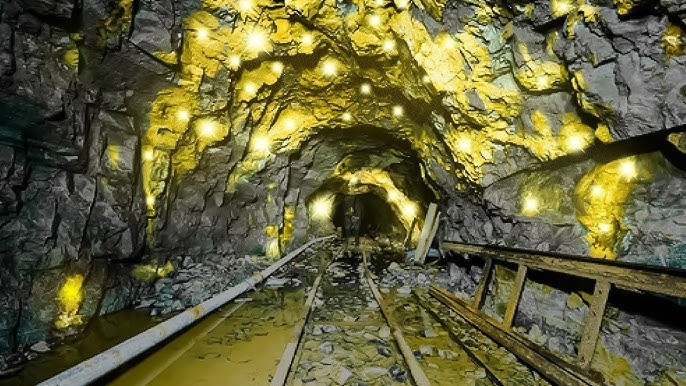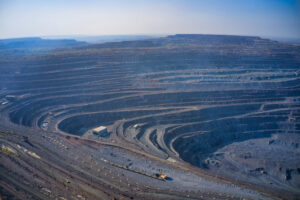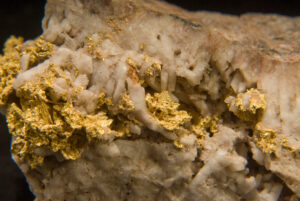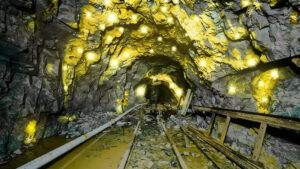
Africa has long been a powerhouse in global gold production, hosting some of the largest and most productive mines in the world. Countries like South Africa, Ghana, Mali, and Tanzania have built their economies around this precious metal, with gold exports playing a critical role in GDP growth and employment. Despite challenges such as fluctuating gold prices and sustainability concerns, technological advancements continue to shape the future of gold mining in Africa.
Top Gold Mines in Africa
South Deep Gold Mine (South Africa)
Located in South Africa’s Witwatersrand Basin, South Deep is one of the world’s largest gold mines, with estimated reserves exceeding 32.8 million ounces. Operated by Gold Fields, this mine is an underground operation that has played a significant role in maintaining South Africa’s status as a major gold producer. South Deep continues to benefit from mechanized mining techniques, making it one of the most technologically advanced mines in Africa.
Obuasi Gold Mine (Ghana)
Ghana’s Obuasi Gold Mine, operated by AngloGold Ashanti, has been a cornerstone of Ghana’s gold industry for over a century. The mine holds estimated reserves of over 8.73 million ounces and was revived in 2019 after a four-year hiatus. Obuasi is an underground mine utilizing modern automation to enhance efficiency and reduce operational costs, reinforcing Ghana’s position as Africa’s leading gold producer.
Loulo-Gounkoto Complex (Mali)
Mali is a rising force in African gold production, and the Loulo-Gounkoto Complex, operated by Barrick Gold, is one of its most significant assets. With a combined output of over 680,000 ounces annually, this mine is vital for Mali’s economy. It employs thousands of workers and contributes significantly to government revenue through taxes and royalties. However, the mine has faced challenges related to political instability and security concerns in Mali’s mining regions.
Geita Gold Mine (Tanzania)
Operated by AngloGold Ashanti, Geita Gold Mine is Tanzania’s largest gold operation, producing over 500,000 ounces per year. Since its discovery in 1896, Geita has evolved into a modern open-pit and underground mining operation. The mine is central to Tanzania’s gold industry, which accounts for nearly 35% of the country’s total exports. Investment in local infrastructure and community development has strengthened its economic significance.
Economic Contributions of African Gold Mines
Gold mining in Africa plays a pivotal role in national economies. The sector generates billions in revenue, supports thousands of direct and indirect jobs, and stimulates local businesses. In South Africa, Ghana, Mali, and Tanzania, gold mining contributes significantly to GDP, with Ghana’s mining sector alone accounting for over 7% of the country’s total GDP. Governments leverage gold revenue through taxation, royalties, and foreign exchange earnings, which are essential for funding public services and infrastructure projects.
Technological Advancements in African Gold Mining
Modern mining operations in Africa are increasingly adopting advanced technologies to improve efficiency and safety. Mines like South Deep and Obuasi are utilizing automation, AI-driven equipment, and digital monitoring systems to optimize production. These innovations help reduce labor-intensive processes, minimize environmental impact, and improve worker safety by replacing traditional manual mining methods with more precise and controlled machinery.
Sustainability Challenges in Gold Mining
While gold mining drives economic growth, it also presents environmental and social challenges. Key concerns include land degradation, water pollution, and carbon emissions. Many gold mines in Africa, including those in Mali and Tanzania, are working toward more sustainable practices by adopting eco-friendly mining techniques, investing in renewable energy sources, and enforcing stricter environmental policies. Companies like Barrick Gold and AngloGold Ashanti are setting industry benchmarks for sustainable mining by rehabilitating land post-mining and ensuring responsible waste disposal.
Africa’s largest gold mines are critical to both local economies and the global gold supply. From the deep underground reserves of South Africa to the open-pit riches of Ghana, Mali, and Tanzania, these mines generate employment, drive technological advancements, and contribute significantly to GDP. However, balancing profitability with sustainability remains a key challenge. As technology continues to evolve, Africa’s gold sector has the potential to become more efficient, environmentally responsible, and economically transformative for the continent.



